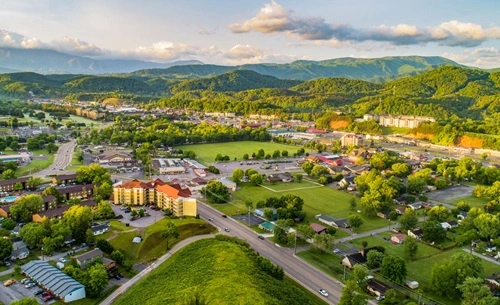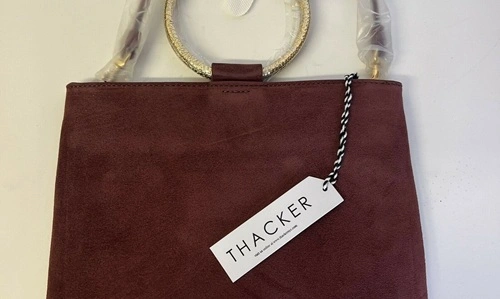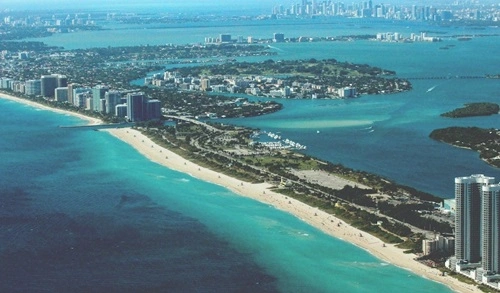Tennessee is often regarded as a hidden gem of the South, blending scenic landscapes, a rich cultural heritage, and economic affordability into one attractive package. Known as the birthplace of country music and home to iconic cities like Nashville and Memphis, the Volunteer State appeals to a wide range of people—from young professionals and musicians to retirees and families. But like any state, it comes with both upsides and drawbacks. If you’re considering a move, here’s a breakdown of the pros and cons of living in Tennessee.
Pros of Living in Tennessee

1. Affordable Cost of Living
One of Tennessee’s biggest attractions is its low cost of living. Housing, utilities, groceries, and healthcare all tend to be below the national average. Whether you’re buying or renting, your money will go further here than in many coastal or northern states. For retirees or remote workers looking to stretch their budgets, this is a significant advantage.
2. No State Income Tax
Tennessee is one of the few states that does not levy a personal state income tax, which means you get to keep more of your paycheck. This tax-friendly environment is especially appealing to professionals, business owners, and retirees with fixed incomes.
3. Diverse Natural Beauty
From the Smoky Mountains in the east to the rolling hills of Middle Tennessee and the Mississippi River in the west, the state is full of scenic variety. Outdoor enthusiasts can enjoy hiking, fishing, camping, and boating almost year-round. Great Smoky Mountains National Park, one of the most visited parks in the U.S., is a major highlight.
4. Rich Music and Cultural Scene
Tennessee has deep musical roots, particularly in Nashville (“Music City”) and Memphis, the home of blues and rock ‘n’ roll. The state is a haven for live music, festivals, and cultural events. Whether it’s country, blues, jazz, or rock, Tennessee offers a vibrant arts and entertainment scene.
5. Growing Job Market
Tennessee’s economy is strong and diversified, with key industries in healthcare, automotive manufacturing, tourism, education, and music. Cities like Nashville and Chattanooga are attracting tech companies and startups, while Memphis remains a hub for shipping and logistics thanks to FedEx’s headquarters.
6. Mild Winters
While summers can get hot and humid, winters in Tennessee are generally mild, especially in the central and western parts of the state. Snowfall is light, and freezing temperatures are less common than in northern states, which makes Tennessee a comfortable place to live year-round for those who dislike harsh winters.
7. Southern Hospitality and Community
People in Tennessee are known for being friendly, welcoming, and neighborly. The state’s strong sense of community and traditional values can be a comforting environment for families and newcomers alike. It’s easy to feel at home here, especially in smaller towns and suburbs.
Cons of Living in Tennessee
1. Hot, Humid Summers
While winters are mild, Tennessee summers can be intensely hot and humid, especially in July and August. High humidity levels can make the heat feel more oppressive, and air conditioning is essential. If you’re sensitive to heat, summers here can be uncomfortable.
2. Tornado and Severe Weather Risk
Tennessee is part of “Dixie Alley,” a region known for its risk of severe weather, including tornadoes, especially during the spring and fall. The state also experiences heavy rain and occasional flooding. Homeowners may need additional insurance coverage and an emergency plan.
3. Healthcare Access in Rural Areas
While urban areas like Nashville have top-tier hospitals and medical facilities, rural regions of Tennessee often suffer from a lack of access to healthcare providers and specialists. If you live outside of the major cities, you may have to travel for quality medical care.
4. Limited Public Transportation
Tennessee is largely a car-dependent state. Public transportation options are limited outside of a few larger cities like Nashville and Memphis, and even there, they don’t rival those of more urbanized regions. If you don’t own a car, getting around can be a challenge.
5. Education Quality Varies
Tennessee’s public education system receives mixed reviews. While some school districts perform well, others—particularly in underfunded rural or inner-city areas—struggle with low test scores, graduation rates, and resources. Families with children should carefully research school districts before choosing where to live.
6. Rapid Growth and Urban Strain
Cities like Nashville and Chattanooga have experienced rapid population growth in recent years. While this growth has fueled job opportunities and economic development, it has also led to rising housing prices, increased traffic, and strain on infrastructure. Affordable housing in some urban areas is becoming harder to find.
7. Conservative Politics and Cultural Divide
Tennessee is a deeply conservative state politically, which may not align with everyone’s values or beliefs. Urban areas tend to be more progressive, while rural regions are traditionally conservative. This cultural and political divide can be a factor depending on your lifestyle and worldview.
Conclusion: Is Tennessee Right for You?
Tennessee offers a lot of advantages—affordability, no state income tax, beautiful landscapes, and a vibrant cultural scene. It’s a state where you can enjoy a high quality of life without the high price tag, making it appealing for families, professionals, and retirees alike.
However, it’s not without its trade-offs. The hot summers, limited public transportation, and disparities in healthcare and education require consideration. Likewise, the political climate and environmental risks like tornadoes may not be ideal for everyone.
Still, for many people, Tennessee strikes a near-perfect balance between comfort, cost, and culture. If you’re looking for Southern charm with modern opportunity, the Volunteer State just might be your next home.
Pro Tip: Visit cities like Nashville, Knoxville, Chattanooga, and Memphis—and don’t overlook smaller towns or mountain communities. Each part of the state has a distinct character and lifestyle, and finding the right fit can make all the difference.



